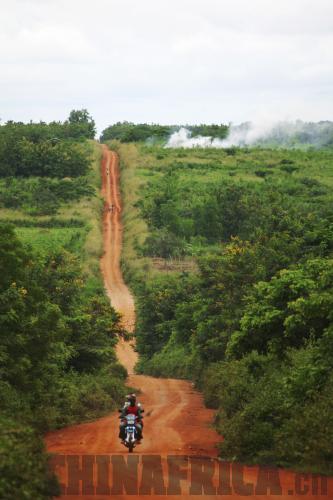|
 |
|
LIFELINE: Roads are vital for Africa's development |
Africa entered into 2012 with the development of the continent's weak and dilapidated infrastructure being top of its to-do list.
Roads, power, pipelines, ports and technology parks are all part of the infrastructure package that the continent wants to use to lift the people out of poverty.
In February government officials from across the continent meet experts, financiers and other independent consultants, in Johannesburg, to discuss opportunities for investment and financing in the field of infrastructure construction. For years policymakers have been slow to see the link between trade and infrastructure. Countries want to get the products to the market, yet the road or rail network is sub-standard and where adequate infrastructure does exist between countries, there are the prohibitive tariff barriers.
It is these basics that have to be addressed if the continent wants to bid goodbye to poverty and the attendant bloody conflicts as a result of fighting for resources.
Investment is key
Calestous Juma, Professor of the Practice of International Development, who has written extensively on Africa's development, told ChinAfrica that the continent requires massive investment in infrastructure for it to meet its development goals.
"It [Africa] will need all the support it can get, including its own military [to help implement the projects]," Juma said.
Now that's not just banter. There are oil explorations going on in Sub-Saharan Africa, in countries like Kenya, South Sudan, Chad and Gabon. In Nigeria, there's the multibillion Eko-Atlantic City project. There's the port in Kenya's coastal town of Lamu that is set to be the destination of ships with goods destined for Ethiopia, South Sudan and Uganda. So obviously infrastructure won't just be a port, but also a road and rail line will be required.
There are also dozens of highways that have to be paved and expanded, as the governments, through their regional trading blocs like the East Africa Community (EAC), the Common Market for Eastern and Southern Africa (COMESA) and the Economic Community of West African States (ECOWAS), seek economic gain from the huge demand for goods and services in the regional markets.
For all these to happen, there's the obvious need for billions of dollars to be pumped into the projects. Then there's the question of expertise, so that the roads, railways or ports do not break down within weeks of being handed-over. Add to that mix the crucial need for cheap but quality maintenance, and you see why Juma insisted that the continent needs "all the support it can get."
At a KPMG-convened Africa Conversation, titled Challenges and Opportunities in African Infrastructure in 2011, Piet Sebola, Project Manager at the Passenger Rail Agency of South Africa, said that along with bankable projects, the successful achievement of financial closure for infrastructure projects is a major concern.
"Infrastructure projects take a long time to implement, starting from feasibility studies and then taking them through to the market to assess. By the time a project is announced and financial closure is achieved, a long time passes. We will have to develop a pipeline of projects which are bankable in order to leverage private capital," Sebola said.
|